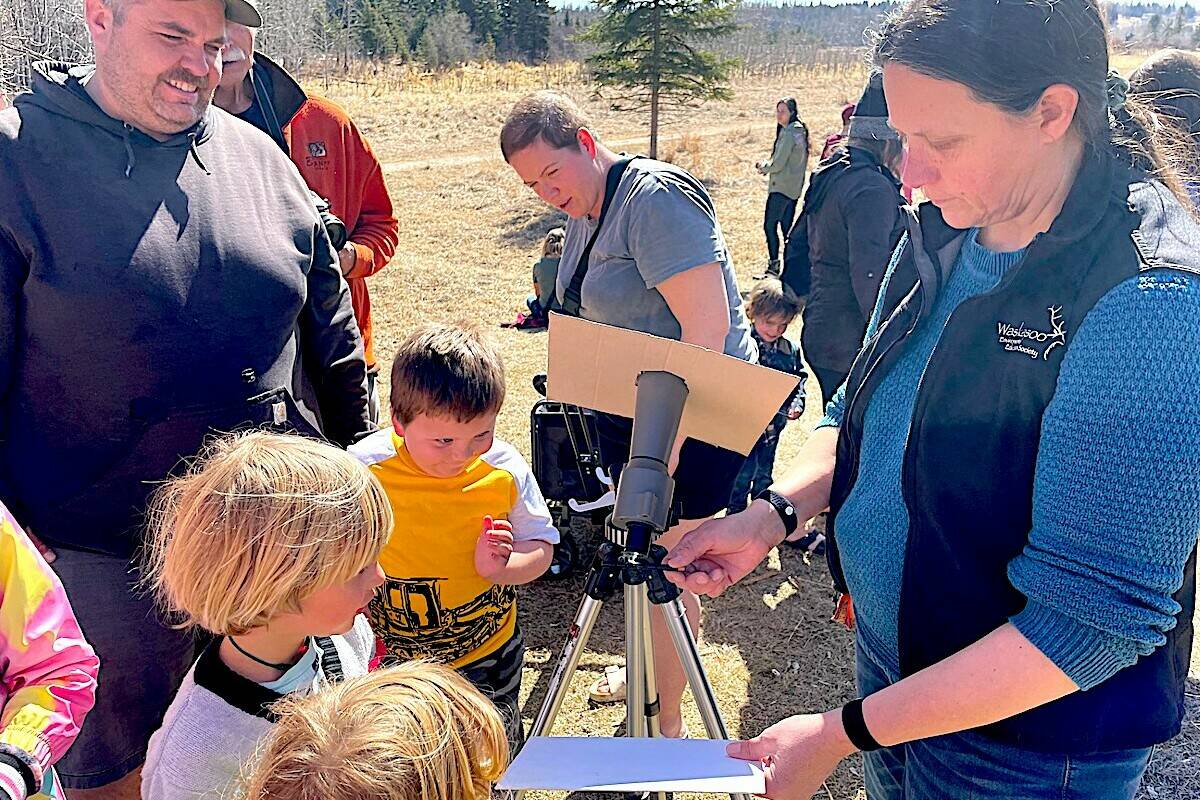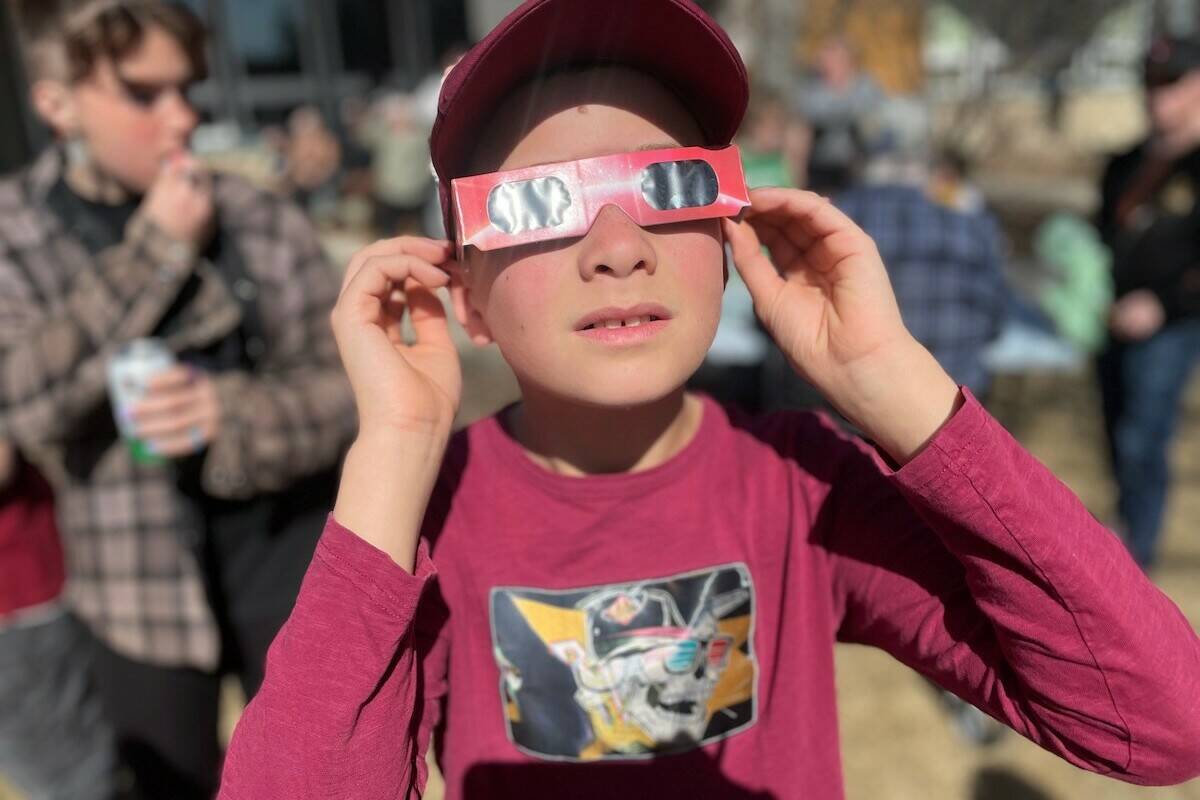Seeing a big bite seemingly taken out of the sun is “probably the coolest thing I’ve seen,” said 10-year-old Solan Banke.
The student was one of hundreds of people who enjoyed watching Monday’s partial solar eclipse over the noon-hour from behind the Kerry Wood Nature Centre. Red Deerians of all ages gathered in the sunny weather to watch the rare event unfold overhead as the moon partially covered the sun in its orbit.
This surge of public interest was “extraordinary,” observed nature centre volunteer David Mathias. Red Deer was far off the “path of totality” that stretched from Mexico to Newfoundland, so only about a third of the sun was obscured by the moon.
Yet the nature centre still had sold out of about 400 pairs of $2.50 eclipse glasses by mid-morning.
“To some degree, we are all still sun worshippers,” concluded Mathias, who was showing the pin-hole method of tracking the eclipse on paper. He believes this event brings into focus how connected and how dependent we are on the sun’s rays.
”I think it does speak to something deep inside us. One can imagine what something like this would have meant to the Egyptians,” Mathias added.
Families and friends who gathered for Monday’s “eclipse party” at the nature centre could view the obscured sun in different ways — through eclipse glasses (which block out harmful ultraviolet rays); through various handmade pin-hole cameras made from cereal boxes and or binoculars; or through light reflected from centre telescopes.
Kathryn Huedepohl, special events programmer at the nature centre, amazed onlookers by demonstrating how sunlight pouring out of a viewing scope was scorching enough to set a crayon smoking.
Folks could also peer at the sun through a large, filtered telescope, 12-inch in width and five feet in length. Kids and their parents marvelled at how two small sun spots — so tiny they could be mistaken for lint — were comparable to how the Earth would look in comparison to the massive sun. Thomas Wooff, the centre’s technician, said it would take more than a million Earths to fill the sun’s volume.
It was a great science lesson for Monica Trom’s two home-schooled daughters, who brought homemade pin-hole cameras. “It’s excellent. They are learning about the solar system and how lenses work,” said Trom.
Some people expressed disappointment the local school districts were not allowing students outside to watch the eclipse as it could damage their eyes. Instead they were watching it indoors on the internet.
Retired teacher Sylvia Kennedy opted to pull her 18-year-old son out of class to watch it in person through eclipse glasses. “I think the closer we are to nature the better off we are,” she explained.
Ula Wiebe taught her preschooler about the eclipse from a YouTube video before bringing the child to the centre. Having seen a near total eclipse in Poland as a child 1999, Wiebe recalled the event was “very exciting” and impactful.
“It’s quite an experience, agreed Evelyn Kheong, who, with her friend Cindy Kuiper, enjoyed watching a small wedge of shadow over the sun get “bigger and bigger.”
Todd Nivens, executive-director of the Waskasoo Environmental Education Society, was thrilled with all the public interest. He feels the eclipse was a positive experience that helped bring people together. “Everyone can talk about it… it’s cool and you don’t get to see it often.”
A better view for Red Deerians won’t be available until August 22, 2044, when most of Alberta will be in the path of totality of a solar eclipse.


